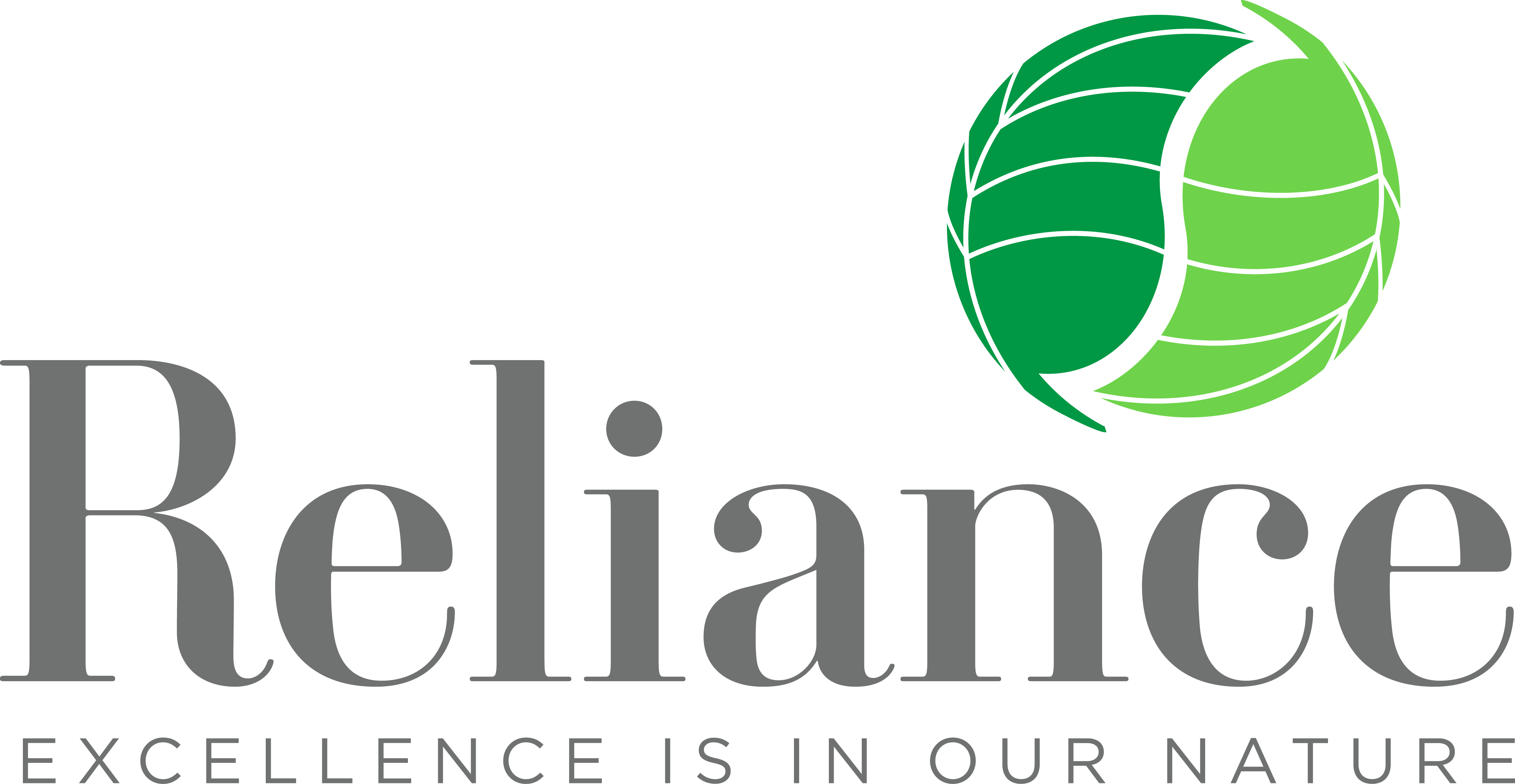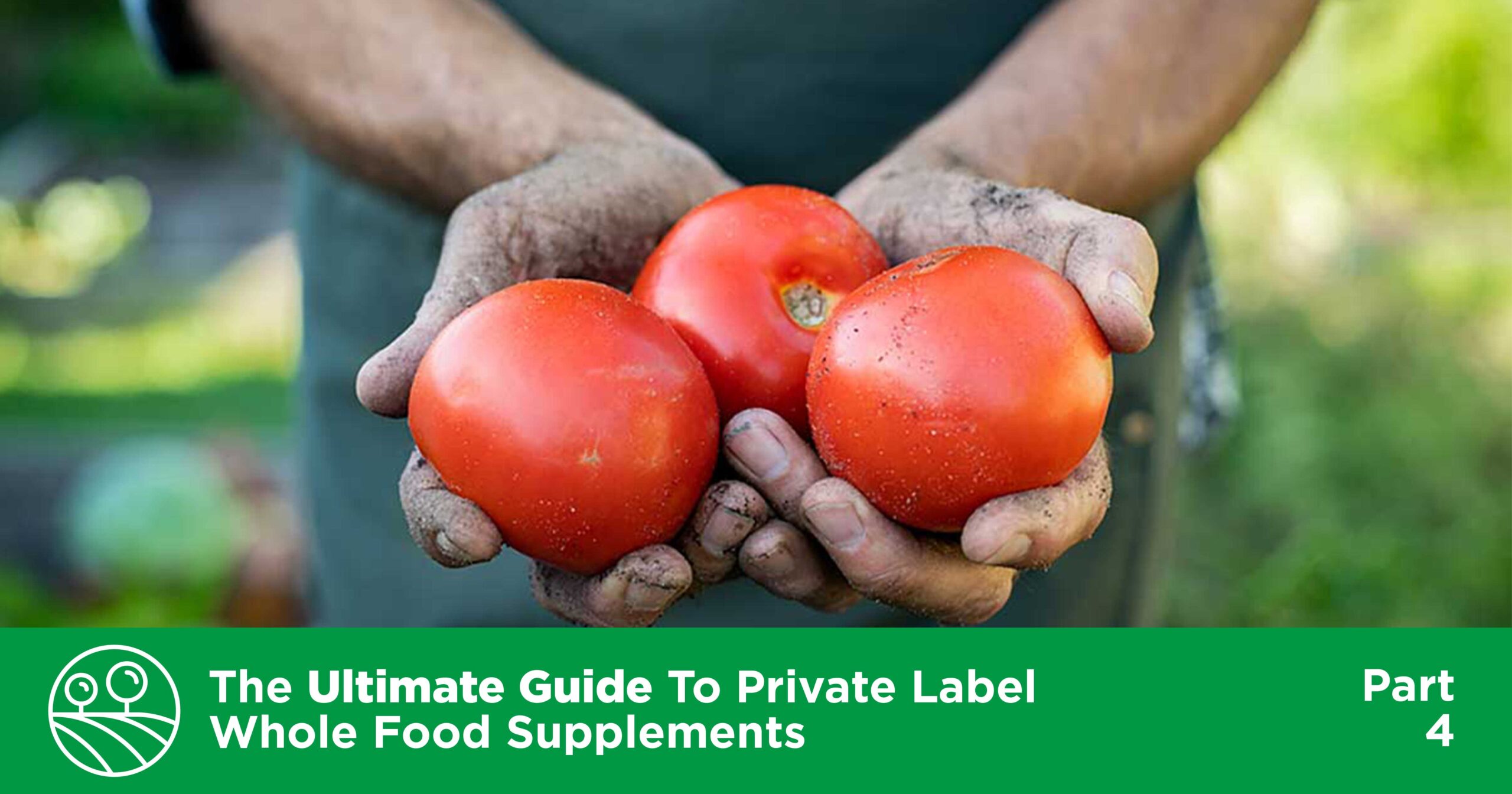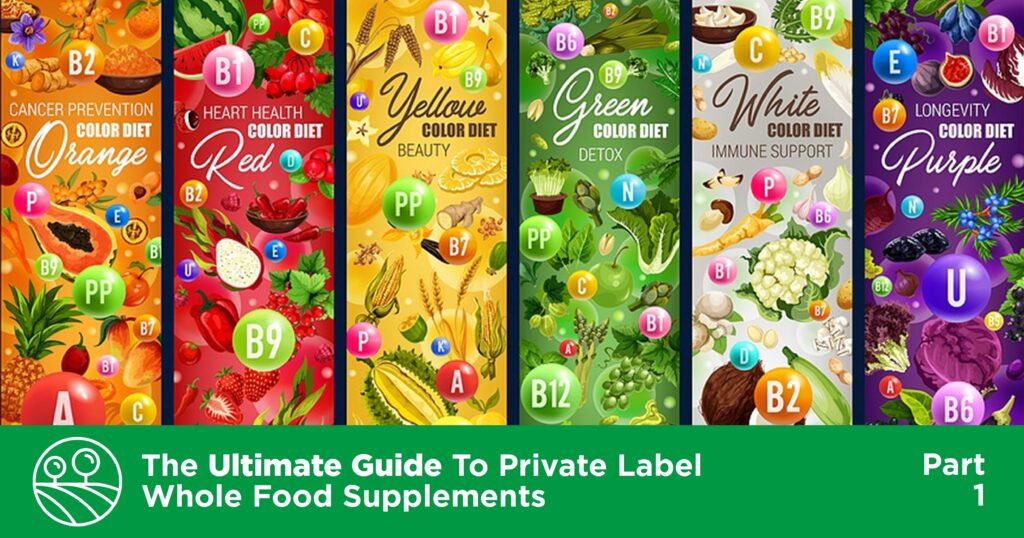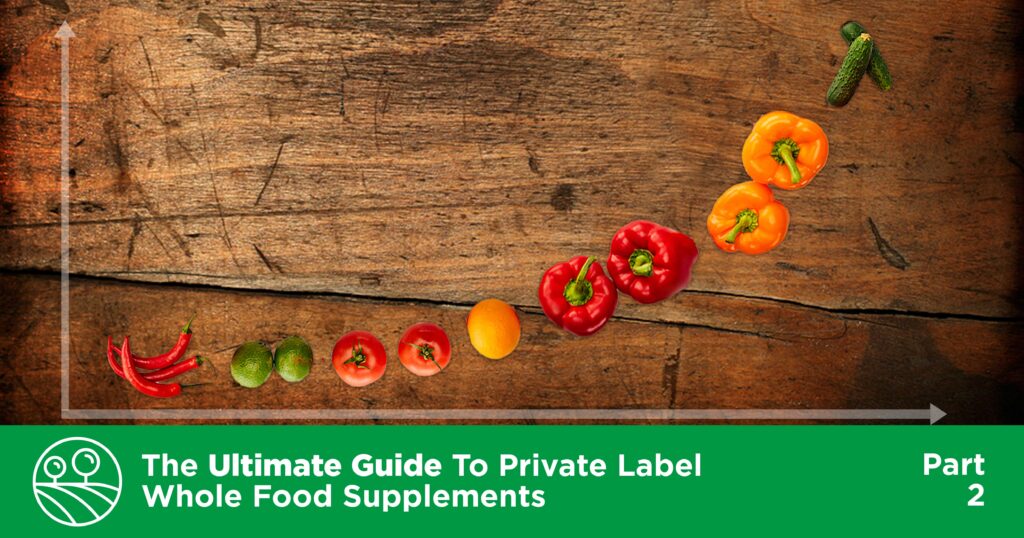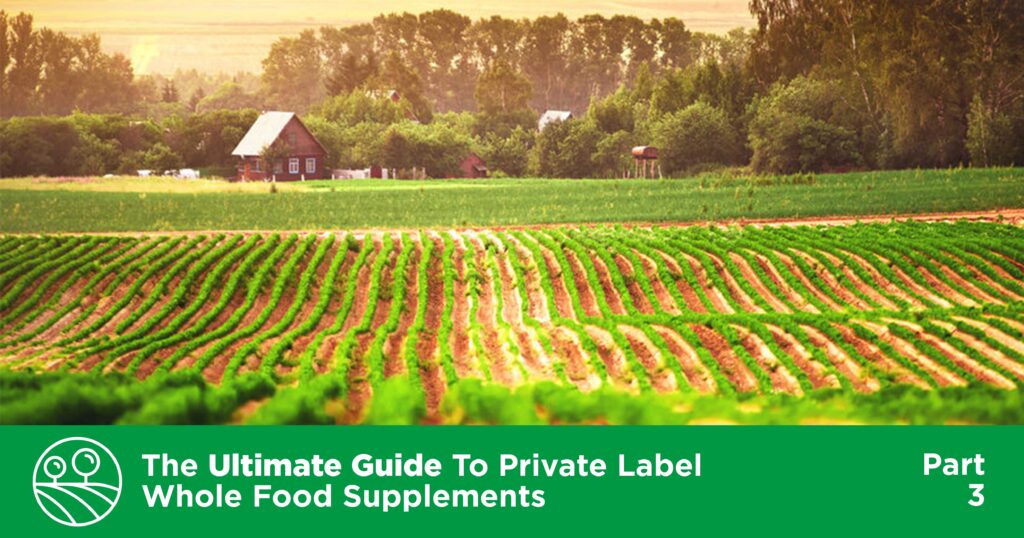This is part of our Ultimate Guide to Private Label Whole Food Supplements, a complete overview of the health benefits of Whole Food supplements, what makes them different from other types of supplements, why there is such consumer demand for them, and how they are made with transparent, high-quality manufacturing processes.
“THE DOCTOR OF THE FUTURE WILL NO LONGER TREAT THE HUMAN FRAME WITH DRUGS, BUT RATHER WILL CURE AND PREVENT DISEASE WITH NUTRITION.”
THOMAS EDISON
Creating market-ready private label whole food supplements requires dietary supplement manufacturers to truly understand the needs of the customer, what trends are relevant, and which new ingredients might provide the biggest benefits. Once the target customer has been identified, the manufacturer will determine which products to create in order to offer a full, well-rounded line of whole food products. They will then utilize their experience and expertise to select the right ingredients for those products in order to deliver the highest quality and desired benefits.
Just as private label probiotic manufacturing can be especially challenging, manufacturing premium whole food supplements is also a complex and intricate process. The following are the most important criteria to look for when selecting a manufacturer for your private label whole food supplements.
What is the Advantage in Offering a Range of Whole Food Products?

Offering a range of private label whole food supplements is an excellent way to deliver high-quality options that add value to a brand, and to attract market demand from a significant consumer base – millennials. Research has shown that millennials are the most likely to buy food that’s grown to maximize nutrition, for example, food that’s local, organic, or grass-fed, and that their generation accounts for more than $1 trillion of consumer spending power. As a result, the values and preferences of millennial shoppers align quite well with the benefits and advantages of whole foods dietary supplements.
When working with an experienced whole food supplement manufacturer, a talented team of researchers and formulators have done a lot of research to understand the market and the ingredients. Crafting in-demand products with real food plus added nutrients means that these private label, whole food products emulate how nutrients are found in nature, which satisfies the consumer who believes that our bodies recognize and better utilize real food than they do chemicals.
Multivitamin and mineral supplements are the most commonly used whole food products, and the fastest growing segment in the VMS Category. These products seem to make up the majority of most whole food offerings, but it is important to have a variety of products that will cover other condition-specific health goals as well.
For example, a whole food prenatal supplement makes a lot of sense, as a mother-to-be will certainly be trying to consume only the cleanest, healthiest products possible. Similarly, with the ever-growing number of vegans and vegetarians in the world, iron is a popular and often necessary supplement, but it often comes with unpleasant side effects such as constipation or nausea that cause many consumers to stop taking it. A vegan, whole food iron chelate would be an excellent option for that large category of consumer, as this form will not cause some of those typical, unwanted side effects.
What is the Value of Branded Ingredients?

The ingredients required to create whole food supplements can be notoriously difficult to source, and need to be of the highest quality. They also demand specialized processing, which is still not mainstream technology among most manufacturers. Therefore, it is important for the manufacturer to identify ingredient suppliers that can provide the consistency of quality and necessary variety of these ingredients.
A little-known insider fact is that there are currently fewer than 5 of them globally that can do this. This means that a lot of the time spent in the research and development phase of whole food supplements is focused solely on sourcing.
Including trademarked, branded, or patented ingredients is a great way to add value to these products. These ingredients come with a breadth of supportive research guaranteeing their safety and efficacy.
Some benefits of branded ingredients are:
- They use high-standard research, often using double blind methods (which limit any biases or manipulation of the data).
- They have vigorous testing protocols to make sure the quality of the product is to the highest standard.
- They are guaranteed to be “clean”, free from harmful substances or contaminants.
- The manufacturing of these ingredients has been conducted under strict conditions to ensure their quality and viability remain intact throughout the process.
- Most ingredient research and studies have been done on the patented ingredients, rather than the generic ones, ensuring that the product using the patented ingredient has been shown to provide the stated benefits.
- Especially for certain whole food supplements where additional nutrients need to be added in order to provide a beneficial amount, including a branded ingredient is another opportunity to provide extra value and quality to the product.
What Product Certifications are Important?

An easy way for consumers to recognize a high-quality whole food supplements is to scan the label for any official seals, sometimes called “bugs” or “symbols” or “marks”. The ones to look for on a private label whole food supplement would be the following:
- Organic: Organic supplements come from foods that are produced by methods complying with the standards of organic farming, generally restricting the use of certain pesticides and fertilizers and employing various environmentally friendly protocols in their manufacturing process. There are two major certifying organizations for Organic products:
- QAI: Short for Quality Assurance International, QAI is a global leader in organic certification. When a manufacturing facility is QAI certified, it has been verified as abiding by the National Organic Program guidelines, and fit to handle or process organic products that are sold, labeled, or represented as “100% Organic,” “Organic,” or “Made with Organic Ingredients.”
- USDA Organic: USDA Organic certifies a manufacturing facility for proper conduct in practices requiring the use of resources, or where ecological balance could be promoted, or biodiversity conserved. Additionally, it precludes the use of any synthetic fertilizers, sewage sludge, irradiation, or genetic engineering in the production of organic goods.
- Non-GMO Project: A mission-driven nonprofit organization offering a third-party non-GMO verification program to the standard consumers expect. They are the pioneer and established market leader for GMO avoidance, and have set the industry standard for non-GMO verification. An independent study by Consumer Reports found the Non-GMO Project Verified seal to be the only “highly meaningful” label for consumers looking to avoid GMOs.
To make a product certified organic, some methods and ingredients typically used, such as cellulose, vegetable stearin, magnesium stearate, etc. are not allowed. Sourcing the appropriate ingredients requires a lot of research, and it also adds cost to the product. Therefore, creating a premium-quality, private label, organic product at a price that is viable for the consumer is very difficult for many manufacturers to accomplish.
How Are Private Label Whole Food Supplements Tested?

Stability testing of finished whole food supplements is necessary to determine the potency, cleanliness, projected lifetime, and expiration date of the product. Much like with probiotics, there are two main types of internal stability testing; Real-Time Stability testing and Accelerated Stability testing, as well as Third-Party testing, which happens with an external facility.
The decision of a manufacturer to work with independent, 3rd party labs provides the consumer with objective evidence of the quality of the products. This helps to further validate that the nutrients were processed using methods that preserve and provide desired bioavailability.
Once all of the internal and third-party testing and data collection have been completed, the manufacturer will release the finished product to be sold by their private label customers
Summary
There are multiple methods and processes involved in the creation of private label whole-food supplements. Appropriate quality control and testing protocols, including third party testing, will produce the cleanest, healthiest, most beneficial whole food supplements available.
Although there are many companies looking to capitalize on the current demand for these products, the challenges involved in their sourcing, processing, and costing means that it is hard to find a manufacturer who offers whole food supplements for private label. Therefore, choosing a trusted and experienced manufacturer to work with is critical to creating and offering a high-quality whole food private label product.
†These statements have not been evaluated by The Food and Drug Administration. This product is not intended to diagnose, treat, cure or prevent any disease.
